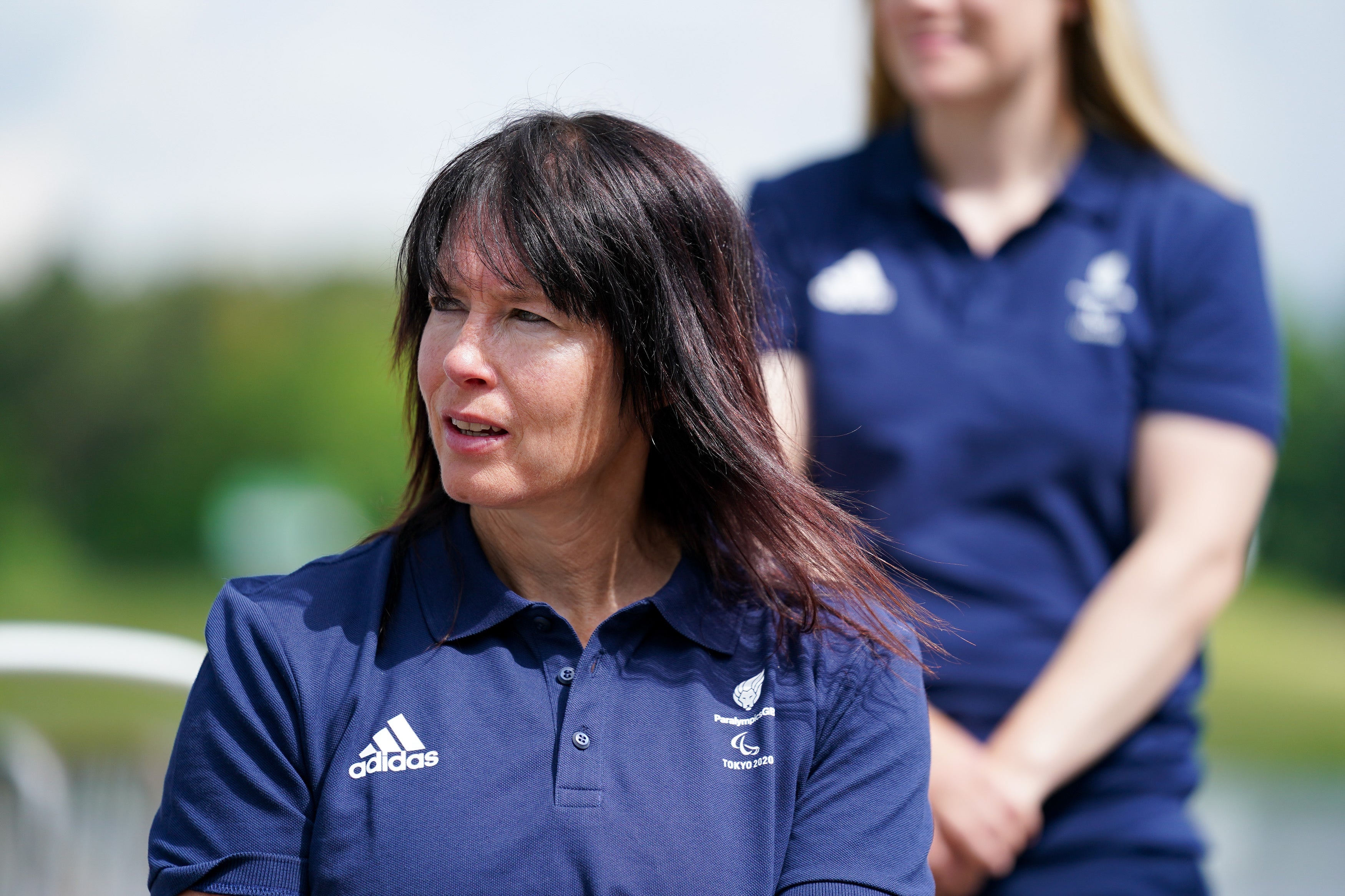Jeanette Chippington fuelled by family loss as she targets 14th Paralympic medal
Gold at Rio 2016 was the 51-year-old’s 13th Paralympic medal.

Your support helps us to tell the story
From reproductive rights to climate change to Big Tech, The Independent is on the ground when the story is developing. Whether it's investigating the financials of Elon Musk's pro-Trump PAC or producing our latest documentary, 'The A Word', which shines a light on the American women fighting for reproductive rights, we know how important it is to parse out the facts from the messaging.
At such a critical moment in US history, we need reporters on the ground. Your donation allows us to keep sending journalists to speak to both sides of the story.
The Independent is trusted by Americans across the entire political spectrum. And unlike many other quality news outlets, we choose not to lock Americans out of our reporting and analysis with paywalls. We believe quality journalism should be available to everyone, paid for by those who can afford it.
Your support makes all the difference.Paracanoeist Jeanette Chippington says the pain of losing her father to coronavirus has fuelled her desire for further Paralympic glory as she prepares for a seventh Games of a remarkable career.
Chippington was on Monday named in Great Britain’s eight-person canoeing squad and will head to Tokyo as defending champion in the KL1 classification.
Gold at Rio 2016 was the 51-year-old’s 13th Paralympic medal and first in the kayak following consistent success as a swimmer between 1988 and 2004.
She will attempt to increase her haul in Japan amid the difficulties of the ongoing global pandemic, during which her dad David died after contracting Covid-19.
Chippington believes training for the rescheduled Games is aiding the grieving process and feels renewed determination to make her family proud.
“There are always challenges with every single Games and all through our lives we’ve had challenges but this one especially so,” she told the PA news agency.
“Unfortunately I lost my dad to Covid in April last year and that was right at the start of lockdown, and that was a really, really difficult time.
“Both of my parents have been out to every single Games, they’ve always been so supportive and so loving and I wouldn’t have got to my seventh Paralympics if it hadn’t been for them.
“That was really difficult and extremely sad but I do know that my mum and my dad would be so proud of me, so I am going to go out to Tokyo and do my best for them.
“During lockdown, it actually helped being at home with the family and that we were all together through that difficult time and I was still able to train.
Being selected for my seventh Paralympic Games, that excitement and that honour that I get is no different. Today has been a really special day.
“And I think training helped – and it still does help very much – with that grief side of it.”
Chippington, who has also won numerous world and European titles, is paralysed in both legs after contracting a virus which resulted in damage to her spinal cord.
Her Paralympic journey began in the pool 33 years ago in Seoul and she earned medals at five consecutive Games before she helped Britain top the Paracanoe medal table when the sport made its debut in Brazil in 2016.
“I think people have this image that the Paralympic Games only really started with London (2012), and they’re very wrongly mistaken,” said Chippington.
“The difference is nowadays that we’ve got a lot more media attention. However, we were professional athletes back in 88.
“But for me, being selected for my seventh Paralympic Games, that excitement and that honour that I get is no different. Today has been a really special day.”
Chippington has been selected for this year’s Games alongside defending KL2 champion Emma Wiggs, KL2 world champion Charlotte Henshaw and KL1 Rio bronze medallist Ian Marsden.
Laura Sugar, Rob Oliver (both KL3), Dave Phillipson (KL2) and Paralympic debutant Stuart Wood (VL3) complete the squad travelling to the Japanese capital.
Eight-time world champion Wiggs shares a room with Chippington and has been inspired by her veteran team-mate.
“We clicked when we first met and you can’t get away from the fact she is the greatest of all time in Paracanoe – men and women,” Wiggs said.
“And then you add her swimming Paralympic career on to that and she’s just an incredibly calm, humble, inspiring friend and team-mate that I’ve learnt a huge amount from.
“I can’t think of someone I’d rather have alongside me to help push on for a good performance.”
Five members of the squad have transferred from other sports during their Paralympic careers, including Wiggs, who switched from sitting volleyball between London 2012 and Rio.
“Rio was just such an iconic venue, a history-making moment to showcase Paracanoe for the first time – that will always be an incredible memory,” said Wiggs.
“The momentum we had from Rio, it drew athletes in from other sports and that’s really given us a boost.”